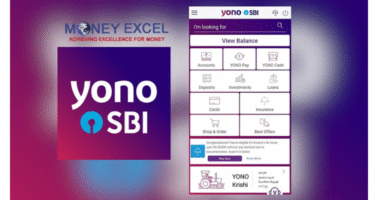DigiLocker is a pioneering initiative by the Indian government that aims to provide a secure and convenient platform for citizens to store and access various official documents and certificates. This digital platform eliminates the need for carrying physical documents, reducing paperwork and offering easy access to important records anytime, anywhere. In this comprehensive article, we will explore how to use DigiLocker for government documents, its benefits, and the process of setting up and using the platform effectively.
Setting up a DigiLocker account is a simple and straightforward process. Users can sign up using their mobile number and linking it to their Aadhaar card. Once the account is created, individuals can start uploading documents such as PAN card, voter ID, driving license, academic certificates, and more. These documents are digitally signed and stored securely in the cloud, ensuring their authenticity and accessibility whenever needed.
One of the key advantages of DigiLocker is its integration with various government departments and agencies. Users can easily retrieve documents issued by these organizations directly into their DigiLocker account. This seamless integration enhances the efficiency of accessing important certificates like land records, vehicle registration, and income tax returns.
Businesses can also leverage the benefits of DigiLocker for storing and sharing important documents. From company registration certificates to tax filings, having all records in one centralized platform streamlines operations and ensures compliance with regulatory requirements. Additionally, DigiLocker offers enhanced security features such as two-factor authentication to safeguard sensitive information.
In the context of business news, the adoption of digital platforms like DigiLocker reflects the ongoing digital transformation in India. The government’s push towards a paperless and digital economy has prompted organizations to embrace technology for managing their document workflows efficiently. Moreover, the shift towards digital document management aligns with the broader objectives of promoting transparency, reducing bureaucracy, and enhancing ease of doing business.
Furthermore, the implementation of DigiLocker in business operations can lead to cost savings and enhanced productivity. By digitizing document storage and retrieval processes, companies can reduce the time and resources spent on manual paperwork. This digital approach not only improves operational efficiency but also contributes to environmental sustainability by reducing paper consumption.
As businesses increasingly rely on data-driven insights and analytics, DigiLocker offers a secure repository for storing critical information. Organizations can securely store financial reports, compliance documents, and other sensitive data in DigiLocker, ensuring data privacy and integrity. The platform’s encryption and authentication mechanisms provide an added layer of security, mitigating the risks associated with data breaches and unauthorized access.
Moreover, the accessibility and portability of DigiLocker make it an ideal tool for businesses operating in a dynamic and fast-paced environment. Whether accessing documents during meetings, sharing reports with stakeholders, or submitting regulatory filings online, DigiLocker enables seamless document management on the go. This flexibility and convenience empower businesses to stay agile and responsive to market demands.
In conclusion, DigiLocker presents a transformative solution for individuals and businesses to manage their official documents efficiently in a digital ecosystem. By embracing this platform, users can experience the benefits of secure document storage, easy access to records, and streamlined workflows. The integration of DigiLocker with government services and its potential for enhancing operational efficiency position it as a valuable asset in the digital age. As businesses continue to embrace digital solutions for document management, platforms like DigiLocker are set to play a crucial role in driving organizational growth and success in the digital era.





